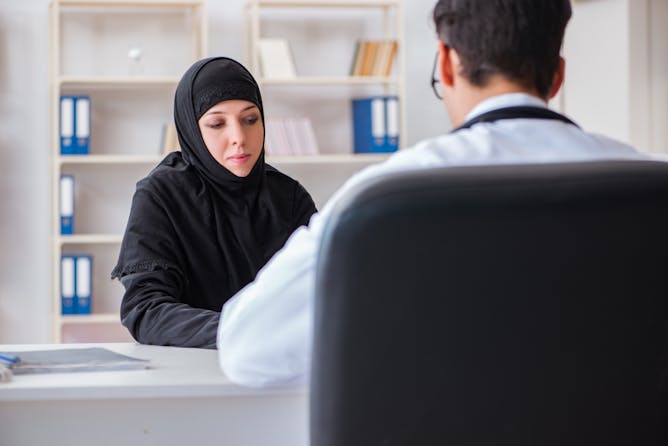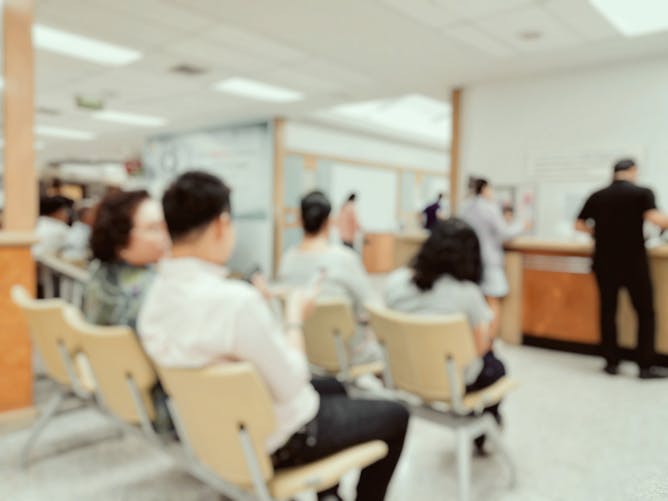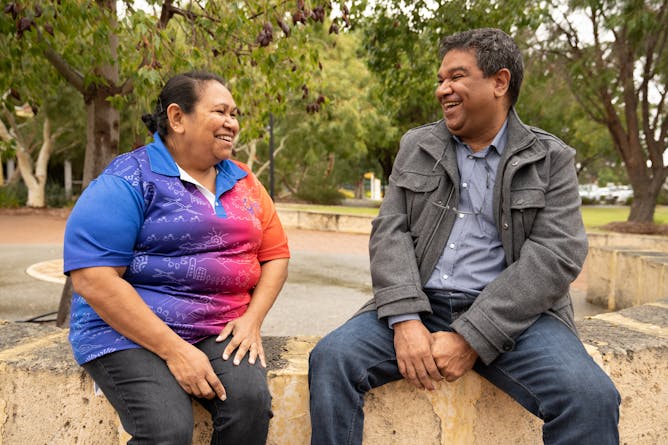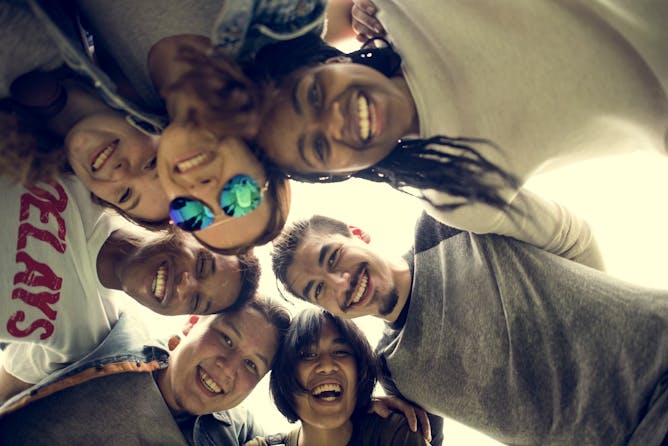|
|
|
Editor's note
|
|
According to the last census, nearly half of Australians were born overseas, or have at least one parent born overseas. The culturally and linguistically diverse groups that make up our population add much to the fabric of Australian society.
Our culture affects the food we eat, the festivals we celebrate, and many other aspects of our day-to-day lives. Importantly, it also has a huge impact on our health.
For one month each year, observing Ramadan influences the way many Muslim people with type 2 diabetes manage their condition. Many people from non-Western backgrounds might place value on traditional medicines in looking after their health and well-being. Aboriginal understandings of health and wellness, too, differ from Western biomedical models. The differences between us even show up in our biology – where we come from plays a part in determining our blood types.
Over the past few weeks, we’ve brought you a series of articles looking at the intersection between culture and health. Where the health outcomes of some of Australia’s culturally and linguistically diverse groups aren’t as good as the overall population, we think it’s important to ask why this is, and how health services in Australia could be more culturally responsive. Of course, we can’t offer all the answers – but we hope you might enjoy a few of these articles.
|
Phoebe Roth
Assistant Editor, Health+Medicine
|

|
|
|
|

Many Muslim Australians currently live with diabetes.
From shutterstock.com
Sue Lynn Lau, Western Sydney University; Ahmed Hussein, Western Sydney University
The holy month of Ramadan can present a challenge for Muslim people with type 2 diabetes who want to fast but can't necessarily do so safely.
|

Australia is a multicultural society, and our health services need to be designed accordingly.
From shutterstock.com
Sabrina Gupta, La Trobe University; Clarice Tang, Western Sydney University
By working together with culturally and linguistically diverse groups, health services can position themselves to deliver culturally responsive care to our multicultural population.
|

Australia’s first Aboriginal Brain Injury Coordinator, Rebecca Clinch, with brain injury survivor Justin Kickett.
Edith Cowan University
Beth Armstrong, Edith Cowan University; Juli Coffin, Telethon Kids Institute
The absence of Indigenous Australians in rehabilitation services has created the belief they don't want therapy. The reality is they want services which better meet their cultural needs.
|

About one in three people living in Australia were born overseas.
From shutterstock.com
Tanya Davison, Swinburne University of Technology; James Daly, Queensland University of Technology; Robert Flower, University of Sydney
Australia is a cultural melting pot, but our blood donors are less diverse. We need a broad mix of ethnicities in our donor pool to meet the needs of patients with rare blood types.
|

Interpreters enable patients to be fully informed about their health condition and options for treatment.
From shutterstock.com
Sarah Verdon, Charles Sturt University
Interpreters are essential in providing ethical and high quality health care to Australia's culturally and linguistically diverse population.
|

Traditional Chinese herbal remedies are today used in many countries.
From shutterstock.com
Josephine Agu, University of Technology Sydney
From herbal remedies to acupuncture, traditional therapies are valued particularly by ethnically diverse groups.
|
| |
Featured jobs
|

|
University of Melbourne — Parkville, Victoria
|

|
Griffith University — South Brisbane, Queensland
|

|
University of Western Australia — Mount Waverley, Victoria
|

|
University of Adelaide — Adelaide, South Australia
|
|
|
|
| |
| |
| |

|
| |
| |
| |
Featured events
|

|
The Capitol, 113 Swanston St, Melbourne VIC 3000, Melbourne, Victoria, 3000, Australia — RMIT University
|
|
|
Law School Foyer, Eastern Avenue, University of Sydney, Camperdown, New South Wales, 2006, Australia — University of Sydney
|
|
|
Law School Foyer, Sydney Law School, Eastern Avenue, University of Sydney, Camperdown, New South Wales, 2006, Australia — University of Sydney
|

|
Monash University Law Chambers, 555 Lonsdale Street, Melbourne, Victoria, 3000, Australia — Monash University
|
|
|
|
| |
| |
| |
| |
| |
|
|
|
|
|
|
|